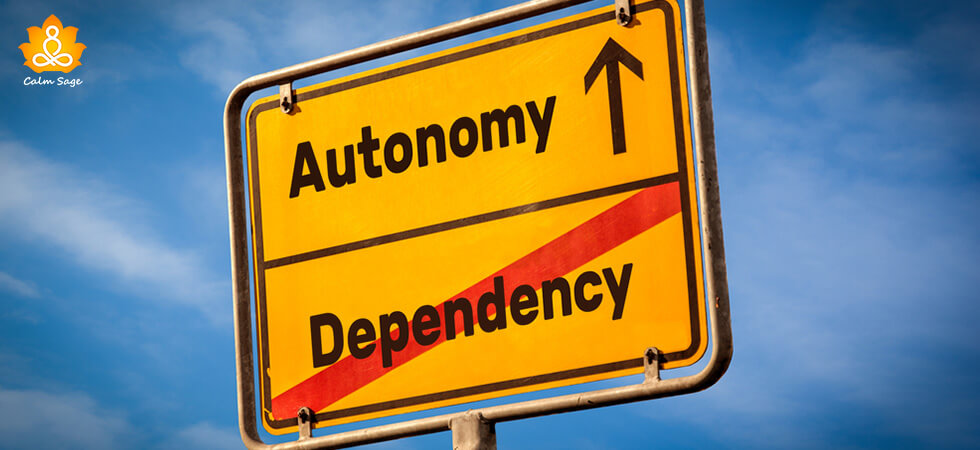Autonomy In Psychology: The Importance Of Becoming Autonomous In Life

“Autonomy is different from independence. It means acting with choice.” – Daniel Pink
Everyone enjoys an autonomous life… isn’t it? When we get to choose what we have always wished for increases the sense of power within.
When we start making independent choices or decisions, we adopt the fundamental human need which is important for motivation, psychological health, and overall well-being. This essential human need is known as autonomy in psychology. In a nutshell, autonomy in psychology is…
“Autonomy…is the freedom to develop one’s self-to increase one’s knowledge, improve one’s skills, and achieve responsibility for one’s conduct. And it is the freedom to lead one’s own life, to choose among alternative courses of action so long as no injury to others results.” – Thomas Szasz
In psychology, autonomy is studied under the self-determination theory. According to this theory, autonomy, relatedness, and competence are the psychological needs which increase intrinsic motivation, self-confidence, and personal well-being.
In this blog, let us explore what is autonomy in psychology, its importance, and how to become autonomous in life. So, let’s get started!
What is Autonomy in Psychology?
Autonomy in psychology is the capability of making choices for yourself rather than depending on other people. Autonomy is a skill that is adapted slowly and gradually. Remember, when we were infants, we were totally dependent on our parents, slowly with experience and peer pressure, we started becoming independent is one of the great examples of autonomy. Even as adults, we have to deal with expectations and societal pressure.
Autonomy is a great deal of freedom of making choices. For example, when we make good decisions, we reward ourselves for doing great things and this drives our motivation to do more wonders.
The Importance of Autonomy in Psychology: Why Autonomy Matters?
Autonomy is important to become independent, increase motivation, and improve overall-well being which indirectly increases the sense of satisfaction. When we start becoming autonomous in life, we start experiencing:
Authenticity
People who excel in the skill of autonomy live life authentically, they become who they want to become truly. Instead of societal pressure and others’ choices, they stand on their decisions and put their interests and values above everything else.
Creativity
When you put your interests and values above everything else, you start fueling up creativity and innovation. It’s a fact that when people provide comfort and a safe space to perform, they feel less pressure, and create “out-of-the-box” strategies with ownership and pride.
Improved Well-being
Research shows that when we get control over life, we start working on improvements. Such improvements are not only seen professionally but personally as well.
Sense of Self
When we start making our choices independently, we feel a sense of ownership, predictability, and satisfaction which influences peace and calm within.
Motivation
When we take a stand in our choices and decisions, we feel intrinsically motivated to achieve great things in life. This helps in achieving a great sense of accomplishment and satisfaction. For example, increased autonomy can also help you fight major illnesses.
Personal development
Autonomy allows us to learn and grow, exercise our judgment, and expand our beliefs. Overall, such expansion has a great influence on our personality development.
What Makes a Person Autonomous?
Autonomy can be developed through various factors like parenting styles, upbringing, childhood experiences, and more. However, feelings of autonomy develop after infancy and before the adolescence phase.
During this time, you may see a toddler make choices between toys, time to play, food preferences, and more. Autonomy can be influenced by the following factors:
- Self-awareness related to emotions, needs, wants, and thoughts
- Lack of control or power over things can make a person lead the change and progress
- The motivation and need to succeed in a particular area drive self-efficacy
- The urge to act, move, and make choices or decisions freely drives the level of freedom required to become autonomous in life
What Does Lack of Autonomy Look Like?
A lack of autonomy can have serious consequences on the professional and personal life, such as
- Reduced sense of satisfaction
- Lack of motivation
- Increased sense and anxiety
- Emotional burnout
- Fear or guilt
- Anger or resentment
- Lack of purpose
- Lack of self-worth and self-esteem
How to Become More Autonomous In Life?
If you want to become more autonomous in life, you can try the below-mentioned strategies to improve autonomy:
1. Increase your authenticity
The first ever step to building or improving autonomy is to be authentic and learn about your strengths and weaknesses so that you can work towards improvement and achieve your goals.
2. Recognize your worth
Recognizing worth not only increases your value but also makes you a creative thinker when it comes to giving an opinion in a particular situation.
3. Build supportive relationships
It’s always a better idea to learn from your mistakes and the people who support you. Start investing in relationships that guide you and encourage you to become a better version of yourself.
4. Build self-efficacy
In order to become more autonomous in your life, you will need to pay attention to your abilities. In order to fight your weaknesses, learn to build strategies that will challenge your core beliefs and improve your self-efficacy.
5. Learn new skills
Learning new things or skills to challenge obstacles in your life, improve your motivation, and achieve your goals.
6. Engage in problem-solving skills
When we engage in problem-solving skills, we allow our thinking and knowledge to expand, and we creatively innovate solutions to problems by understanding the pros and cons of each situation.
I hope this blog helps you understand autonomy in psychology. Comment down and share your views on autonomy. Always remember,
“Control leads to compliance; autonomy leads to engagement.” – Daniel H. Pink
For more such content, connect with us on all social media platforms.
Thanks for reading!




















